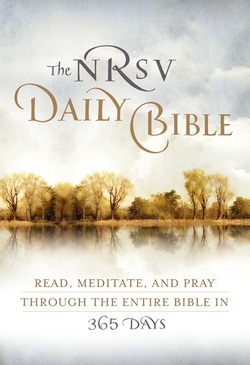" ...then the priest shall make an examination, and if the disease has covered all his body, he shall pronounce him clean of the disease; since it has all turned white, he is clean. (Leviticus 13:13)
Huh? When a known disease has covered the whole body, that makes for the end of 'unclean?' What? I'll return to this question shortly. Hang in there with me.
I am up to date with my reading, but also playing catch-up with posts. Right now we are well into the book of Numbers. For those reading along, take courage. Numbers will not last forever. Picture someone writing down lists that had been memorized for generations and passed down orally. It may be as interesting as reading the phone book, but in this book we have evidence of a living culture- people making an effort to keep family trees organized.
The brain teaser alluded to in the title of this post comes from about two weeks ago. There is a long section of Leviticus devoted to the classification of diseases, and what must be done about them. You can see the nexus between health and spirituality in the fact that it was the priests who examined individual Israelites to pronounce them clean or unclean.
Clean and unclean. The categories surely I hope to shed some light on this, and light sometimes comes in strange places. Read the verse again: "...then the priest shall make an examination, and if the disease has covered all his body, he shall pronounce him clean of the disease; since it has all turned white, he is clean." (Leviticus 13:13)
Once the illness has completely covered the body the patient is 'clean?' What on earth?
This is a clue to what is meant by clean and unclean. Ancient Israel was fanatical about separateness. Think about what we have read together with an eye on the need to keep certain things separate. There was a rule against mixed fiber garments. (Did you know your cotton/polyester T-shirts are not kosher?) There was a rule against women dressing like men, and viceversa. Only priests could handle the sacred furnishings of the Tabernacle. Non-priests were under severe penalty for touching the holy things. Separation.
When a leper had disease on only part of the body, that meant uncleanness- not so much the disease itself, but the evidence that some flesh was one type and some was another. If the disease covered the whole body, there was no 'mixing' so the person was no longer unclean. The sense of 'unclean' was very different than the ordinary meaning we might assume. They equated holiness with being set apart. One 'kind' touching another 'kind' meant a mixture that spoiled holiness. The foundation of this idea is the first commandment- "You shall have no other gods." No mixing with other deities.
Kiekegaard said "Purity of heart is to will one thing." No mixed loyalty. Easy to say, not easy to do. Good thing our holiness rests on the mercy of Jesus, who stepped across the threshold that separated God from humanity. He took on the risk of mixing in with humans. Paul wrote, "For our sake he made him to be sin who knew no sin, so that in him we might become the righteousness of God." (2nd Corinthians 5:21)
Huh? When a known disease has covered the whole body, that makes for the end of 'unclean?' What? I'll return to this question shortly. Hang in there with me.
I am up to date with my reading, but also playing catch-up with posts. Right now we are well into the book of Numbers. For those reading along, take courage. Numbers will not last forever. Picture someone writing down lists that had been memorized for generations and passed down orally. It may be as interesting as reading the phone book, but in this book we have evidence of a living culture- people making an effort to keep family trees organized.
The brain teaser alluded to in the title of this post comes from about two weeks ago. There is a long section of Leviticus devoted to the classification of diseases, and what must be done about them. You can see the nexus between health and spirituality in the fact that it was the priests who examined individual Israelites to pronounce them clean or unclean.
Clean and unclean. The categories surely I hope to shed some light on this, and light sometimes comes in strange places. Read the verse again: "...then the priest shall make an examination, and if the disease has covered all his body, he shall pronounce him clean of the disease; since it has all turned white, he is clean." (Leviticus 13:13)
Once the illness has completely covered the body the patient is 'clean?' What on earth?
This is a clue to what is meant by clean and unclean. Ancient Israel was fanatical about separateness. Think about what we have read together with an eye on the need to keep certain things separate. There was a rule against mixed fiber garments. (Did you know your cotton/polyester T-shirts are not kosher?) There was a rule against women dressing like men, and viceversa. Only priests could handle the sacred furnishings of the Tabernacle. Non-priests were under severe penalty for touching the holy things. Separation.
When a leper had disease on only part of the body, that meant uncleanness- not so much the disease itself, but the evidence that some flesh was one type and some was another. If the disease covered the whole body, there was no 'mixing' so the person was no longer unclean. The sense of 'unclean' was very different than the ordinary meaning we might assume. They equated holiness with being set apart. One 'kind' touching another 'kind' meant a mixture that spoiled holiness. The foundation of this idea is the first commandment- "You shall have no other gods." No mixing with other deities.
Kiekegaard said "Purity of heart is to will one thing." No mixed loyalty. Easy to say, not easy to do. Good thing our holiness rests on the mercy of Jesus, who stepped across the threshold that separated God from humanity. He took on the risk of mixing in with humans. Paul wrote, "For our sake he made him to be sin who knew no sin, so that in him we might become the righteousness of God." (2nd Corinthians 5:21)


 RSS Feed
RSS Feed